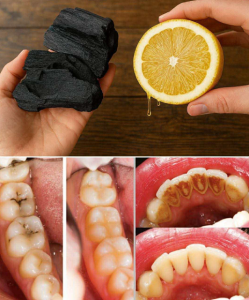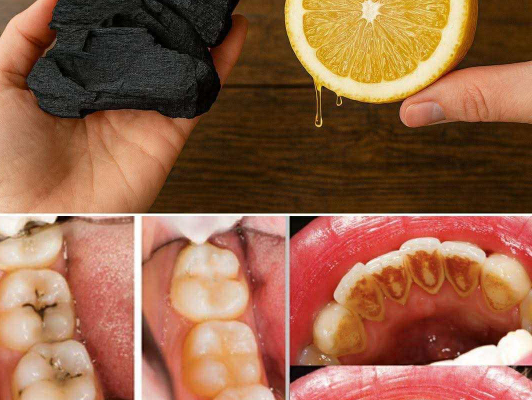
The Magic of Lemon Juice and Activated Charcoal: Natural DIY Solutions for Skin and Teeth
In the world of natural wellness, few ingredients evoke as much intrigue and ritual as lemon juice and activated charcoal. One is bright, acidic, and sun-kissed; the other is dark, porous, and born of fire. Together, they form a compelling contrast — a yin-yang of DIY beauty that speaks to our desire for clarity, detoxification, and transformation. But beyond their aesthetic appeal lies a deeper story: one of chemistry, culture, and the emotional resonance of cleansing.
🍋 Lemon Juice: Nature’s Brightener
Lemon juice has long been celebrated for its astringent and antibacterial properties. Rich in vitamin C and citric acid, it’s a natural exfoliant that helps slough off dead skin cells, lighten hyperpigmentation, and tighten pores. For centuries, people have turned to lemons not just for flavor, but for their symbolic and literal power to purify.
Skin Rituals
- Brightening and exfoliation: The citric acid in lemon juice gently dissolves the bonds between dead skin cells, revealing a fresher layer beneath. This makes it a popular ingredient in DIY face masks aimed at evening out skin tone and reducing acne scars.
- Oil control: Lemon’s acidity can help regulate sebum production, making it a go-to for those with oily or acne-prone skin.
- Antibacterial action: Its natural antibacterial properties may help reduce acne-causing bacteria on the skin’s surface.
Yet, lemon juice is not without its caveats. Its potency can lead to irritation, especially for sensitive skin or when exposed to sunlight. The ritual, then, becomes one of balance — knowing when to apply, how to dilute, and when to pause.
Teeth Whitening
Lemon juice’s role in dental care is more controversial. While its acidity can help remove surface stains, it can also erode enamel if used excessively. Some DIY enthusiasts mix lemon juice with baking soda for a whitening paste, but dentists often caution against this due to the risk of enamel damage.
Here, the magic lies not in the ingredient alone, but in the intention and moderation behind its use. Lemon juice becomes a symbol of brightness — a way to reclaim radiance, but only if we respect its edge.
🌑 Activated Charcoal: The Absorber of Impurities
If lemon juice is the light, activated charcoal is the shadow — absorbing toxins, drawing out impurities, and offering a kind of visual drama that feels almost mythic. Made by heating carbon-rich materials to high temperatures, activated charcoal becomes highly porous, giving it the ability to bind to substances and lift them away.
Skin Detox
- Deep cleansing: Activated charcoal is often used in masks and cleansers to draw out dirt, oil, and pollutants from the skin. Its porous structure acts like a magnet for impurities.
- Soothing inflammation: Some users report reduced redness and swelling after using charcoal masks, especially when combined with calming ingredients like aloe or chamomile.
- Pore refinement: By removing debris from pores, charcoal can help them appear smaller and less congested.
The experience of applying a charcoal mask — thick, black, and opaque — is itself a ritual of transformation. It invites us to confront the mess, the murk, and the mystery of our own skin. And when we rinse it away, we enact a kind of symbolic shedding.
Teeth Whitening
Charcoal’s popularity in oral care has surged in recent years. Charcoal toothpastes promise to lift stains and detoxify the mouth, offering a natural alternative to chemical whiteners. The gritty texture helps polish teeth, while its binding properties may help remove plaque.
However, like lemon juice, charcoal’s abrasiveness can pose risks. Overuse may wear down enamel or irritate gums. The key, again, is ritual — using charcoal as a periodic cleanser rather than a daily scrub.
🧪 The Chemistry of Contrast
What makes lemon juice and activated charcoal so compelling is their elemental opposition. One is acidic, the other alkaline. One is bright and fragrant, the other dark and odorless. Together, they evoke a kind of alchemical balance — a push and pull between purification and illumination.
In DIY beauty, this contrast becomes a metaphor. Lemon juice lifts and lightens; charcoal grounds and absorbs. One reveals, the other removes. And in combining them — say, in a dual-phase mask or alternating treatments — we engage in a layered ritual of care.
🧘🏽♀️ The Psychology of Cleansing
Beyond the physical effects, these ingredients tap into something deeper: our emotional relationship with cleanliness, clarity, and control. Applying a lemon mask or brushing with charcoal toothpaste isn’t just about results — it’s about reclaiming agency over our appearance, our rituals, and our sense of self.
- Lemon juice evokes freshness: It’s the scent of morning, of renewal, of starting over.
- Charcoal evokes depth: It’s the texture of introspection, of drawing out what’s hidden.
Together, they invite us into a cycle of reflection — to examine what we want to shed, what we want to reveal, and how we navigate the tension between the two.
🧴 DIY Recipes and Rituals
Here are a few gentle, balanced ways to incorporate lemon juice and activated charcoal into your routine:
1. Lemon & Honey Brightening Mask
- 1 tsp fresh lemon juice
- 1 tbsp raw honey
- Optional: a pinch of turmeric
Mix and apply to clean skin for 10 minutes. Rinse with warm water. Use once a week.
2. Charcoal & Clay Detox Mask
- 1 tsp activated charcoal powder
- 1 tbsp bentonite clay
- 1 tbsp water or rosewater
Mix into a paste and apply for 10–15 minutes. Rinse thoroughly. Use biweekly.
3. Gentle Charcoal Tooth Polish
- 1/2 tsp activated charcoal
- 1 tbsp coconut oil
- Optional: a drop of peppermint oil
Brush gently for 1–2 minutes, then rinse. Use once a week.
4. Lemon Rinse for Oily Skin
- 1 tbsp lemon juice
- 1 cup distilled water
Use as a toner after cleansing. Store in the fridge and use within a week.
⚠️ Safety and Sensitivity
As with all DIY treatments, patch testing is essential. Lemon juice can cause photosensitivity, so avoid sun exposure after use. Charcoal can be messy and abrasive, so use sparingly and gently. These ingredients are powerful — not because they’re harsh, but because they invite us to be intentional.
🌿 Communal Meaning-Making
In your hands, 32.Phirun, these rituals become more than recipes — they become invitations. To co-title the experience of cleansing. To reframe the spectacle of beauty as a shared vulnerability. To turn discomfort into a moment of reflection, and ambiguity into a communal story.
Whether you’re curating a visual series around these ingredients or inviting others to share their own DIY rituals, lemon juice and activated charcoal offer a rich canvas. They’re not just tools — they’re metaphors. For light and shadow. For shedding and revealing. For the quiet magic of care.


